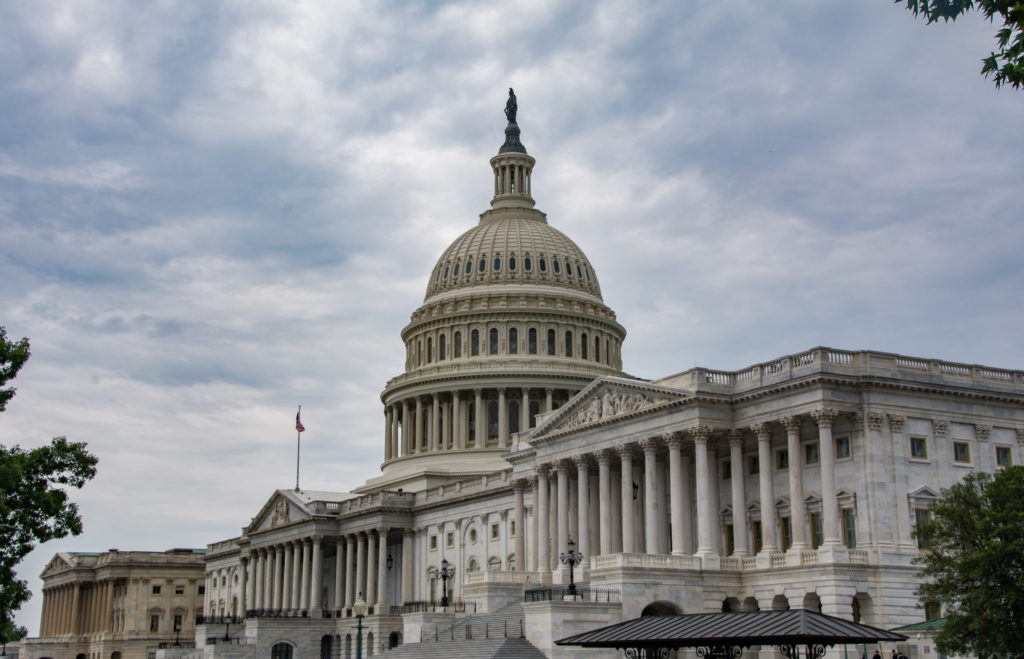
WASHINGTON (BP) – The Southern Baptist Convention’s ethics entity is grateful for the passage by the U.S. House of Representatives of legislation to grant citizenship to an overlooked category of international children adopted by American citizens.
The Adoptee Citizenship Act gained approval Feb. 4 as part of the America Creating Opportunities for Manufacturing, Pre-eminence in Technology and Economic Strength (COMPETES) Act. In a nearly party-line roll call, the House voted 222-210 for the overall bill, which is intended to strengthen the United States’ competitiveness with China.
The adoption proposal, which has yet to achieve Senate passage, would plug a loophole in a law enacted more than two decades ago to streamline the process for Americans adopting children from another country. The Child Citizenship Act, which became law in 2000, granted U.S. citizenship to any child born overseas and adopted by at least one American citizen.
The law, however, covered only children less than 18 years of age when the bill was enacted and future adoptees, thereby failing to include adopted children who were older at the time. The Adoptee Citizenship Act grants full citizenship immediately to the adoptees overlooked in the earlier law.
Chelsea Sobolik, director of public policy for the Ethics & Religious Liberty Commission (ERLC), said House approval of the Adoptee Citizenship Act “is good news because it provides a permanent legal remedy for the thousands of sons and daughters of U.S. citizens who were adopted as children but left out of the original Child Citizenship Act.
“Too often, legal hurdles and past challenges stand in the way of families who have a heart for adoption. This legislation will correct a wrong against thousands of adoptees that should have been corrected long ago.
“Because of that, we would plead with elected leaders from both parties to make this solution a stand-alone priority for final passage so that it doesn’t get bogged down by partisanship or pettiness.”
Rep. Adam Smith, D-Wash., sponsor of the Adoptee Citizenship Act, described House passage of his proposal as “a major step forward for many international adoptees who currently do not have U.S. citizenship.”
“These individuals grew up here and started careers and families, but through no fault of their own they never received citizenship and are living in uncertainty about their future,” he said in a written statement.
The lead Republican sponsor of the Adoptee Citizenship Act in the House is Rep. John Curtis of Utah. In the Senate, the lead sponsors are Sens. Mazie Hirono, D-Hawaii, and Roy Blunt, R-Mo.
Promotion of pro-adoption and pro-foster care policies and protection of faith-based, child-welfare agencies from government discrimination are among the ERLC’s public policy priorities.
This includes international adoptions by U.S. citizens. The number of children adopted from other countries by Americans has fallen by more than 90 percent from a peak of 22,989 in 2004 to 1,622 in the fiscal year that ended in September 2020, according to the U.S. State Department. The ERLC is working with the State Department and other advocates “to ensure that intercountry adoption remains a viable option for families and vulnerable children around the world,” according to the entity’s 2022 Public Policy Agenda.
In June, the Senate approved legislation supported by nearly 20 Republicans that sought to address some of the same matters targeted by the America COMPETES Act. The U.S. Innovation and Competition Act, which gained passage in a 68-32 vote in the Senate, did not include the Adoptee Citizenship Act.
The approaches in the separate, overall bills to supporting research and technology, as well as other issues, vary markedly and present multiple challenges to members of the House and Senate seeking to achieve reconciliation.

















